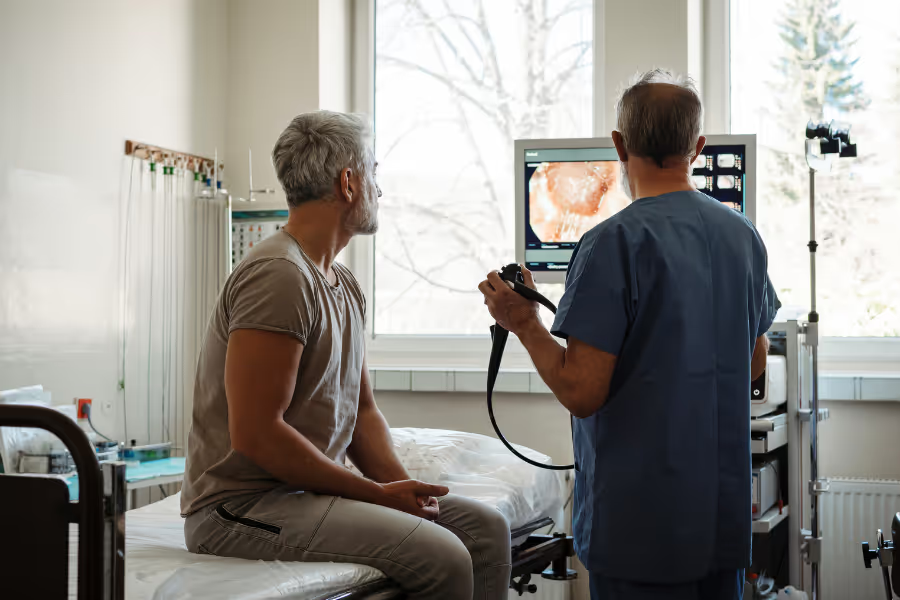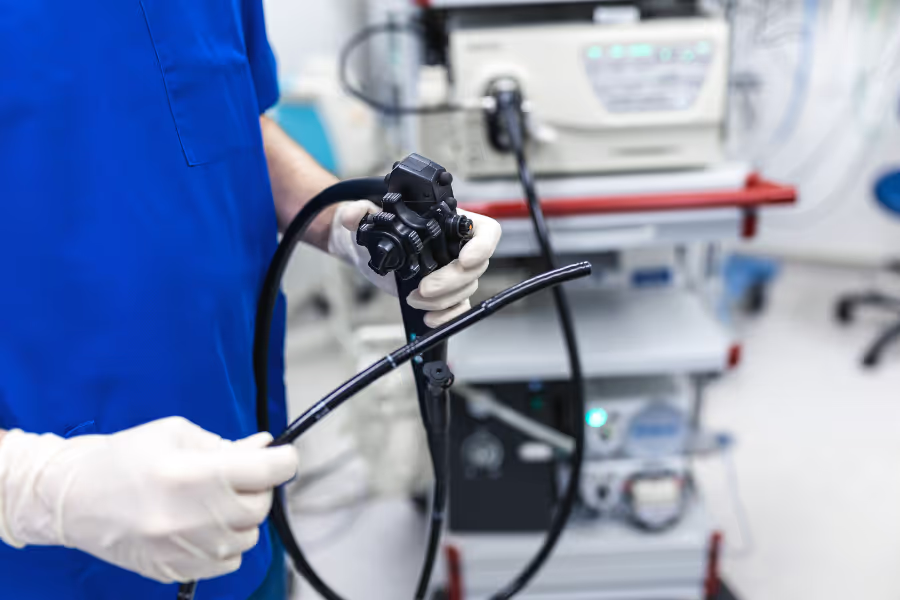
Informational purposes only, not medical or legal advice. Please consult your doctor or surgeon.
A colonoscopy is a test doctors use to look inside your large intestine (colon) and the very end of your bowel (rectum). They use a long, thin, flexible tube called a colonoscope. It has a tiny light and camera at the tip that sends video to a screen, so the doctor can see the lining in real time.
During the exam, the doctor gently guides the scope through the rectum into the colon. Air or carbon dioxide is added to open the space for a clear view. If they spot small growths called polyps or anything unusual, they can remove a piece (a biopsy) or the whole polyp through the scope using tiny tools.

Most colonoscopies take about 20–45 minutes. Plan extra time at the clinic for check‑in, sedation, and recovery.
Basic steps

The good news is that colonoscopies generally don't require much in the way of recovery in most cases. You'll likely feel totally normal within a day or two. But always consult your specialist.
In Canada, private clinics charge between $1,000 to $3,000 for a colonoscopy.
Most quotes for private colonoscopies cover:
Choosing your surgeon is one of the benefits of going the private route. Here is what to consider when making your choice.
A colonoscopy is a test where a doctor uses a thin, flexible camera to look inside your large intestine and rectum.
No, you do not need a referral for a private colonoscopy in Canada. You can book a consultation directly with a physician, and they will review your condition, symptoms, and any previous treatments or diagnostics.
Your doctor will give specific instructions—always follow their plan first.
Your individual risk depends on your health, anatomy, sedation plan, and what’s done during the scope (biopsies, polyp removal). Discuss your personal risks with your doctor.
Your situation depends on your symptoms, test results (e.g., positive FIT, anemia, bleeding, bowel habit changes), family history, and how well basic tests or treatments have worked. Talk with your doctor about your specifics.
Progressive symptoms and life impact
Disease progression
Harder diagnosis and treatment later
Emergency evaluations
Nerve, energy, and mood effects from anemia
Medication-related downsides
If you still have questions, then feel free to contact us directly.

Browse vetted specialists across Canada. Compare prices, qualifications, locations.
BROWSE SURGEONS